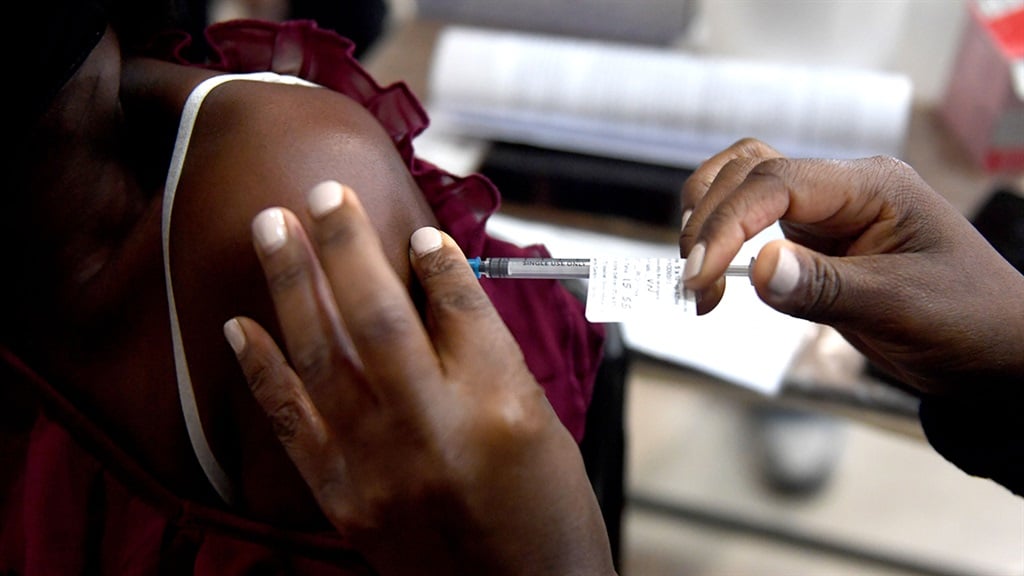
- SA businesses can help the vaccine rollout with practicalities including registration, says B4SA.
- Not all businesses will be able to set up vaccine sites, but some in retail and mining have already got the ball rolling.
- Government does not need to be convinced of the role the private sector can play, says B4SA.
SA businesses can help the country's Covid-19 vaccine rollout by using their databases to get as many South Africans registered as possible, says a member of the lobby group leading a business initiative to help government reach its inoculation target.
Lungi Nyathi, workplace site lead of Business for South Africa (B4SA), told Fin24 on Monday: "That would be the biggest help and if they have the capacity, also to try to assist with registration - for example, like some businesses setting up special kiosks on their premises for this purpose."
South Africa's vaccination rollout has faced some setbacks, including the possible contamination of two million Johnson & Johnson vaccines, which had to be disposed of.
Last month, meanwhile, the National Department of Health had to shut down the electronic vaccination data system (EVDS) in order to tighten controls and prevent queue jumping.
B4SA is an alliance of volunteers working with government and other stakeholders to mobilise business resources and capacity to combat the Covid-19 pandemic.
At the moment, its key goal is to support the vaccine rollout.
Nyathi said government was fully on board with the involvement of the private sector.
"Don't lose perspective. There is no need for the SA business sector to convince government of the role the private sector can play in the rollout of the Covid-19 vaccination programme in the country. So, it is not about having a private sector vaccine rollout stream and a public sector rollout stream," said Nyathi.
However, she said, there were still challenges in setting up vaccine sites on business premises. But not all businesses need to have their own vaccination sites, says Nyathi.
"There are several requirements to be able to set up a private vaccine site. Accreditation is required and not all workplaces are able to meet the requirements. There is also the question about the cost of setting up such a vaccine site - the infrastructure and logistics."
It usually takes about 14 days from the time accreditation is received until a site can be "on-boarded". Capacity is still being built in the public and private sector.
Examples of companies already running their own vaccine sites include Impala Platinum, Old Mutual and BMW.
Mining sector
Businesses cannot secure their own vaccinations. All vaccines must be procured by government, which decides on distribution.
But mining company Sibanye has been negotiating with government over the question of procuring its own vaccines.
"We are willing to pay for it," says James Wellsted, head of investor relations.
Sibanye is also proposing to government to use its facilities and healthcare to assist with the vaccine rollout where its mines are.
Sibanye is part of B4SA.
"We have 44 clinics and healthcare facilities in our operations," said Wellsted.
"We estimate that we could vaccinate 18 000 people per day, so we could vaccinate our workforce of about 80 000 within a week. We also estimate that we could vaccinate a total of 250 000 people within a couple of weeks from our side alone. Currently there is no approval yet, but we are engaging with government. We are busy training our staff to be sure they can do it."
He estimates that it would the cost about R200 million to get 250 000 people vaccinated by Sibanye.
The Shoprite Group told Fin24 it looks forward to its employees being prioritised as part of the government's vaccination programme. Through MediRite – the group's pharmacy chain – it is working with the Department of Health on vaccine rollout, guided by government plans.
About 100 MediRite pharmacy sites are registered on the Master Facility List (MFL), but the activation of each site will depend on the demand in those specific areas, as well as the type of vaccine available. MediRite’s frontline health workers have already been included in the first phase of the government's roll-out programme.
One key question that remains, however, is around labour law.
Anastasia Vatalidis, director and head of labour and employment practice at Werksmans Attorneys, says according to a new occupational health and safety directive published by the Department of Employment and Labour on 11 June, employers may not impose mandatory vaccinations on employees.
READ | Businesses told they can fire workers who refuse Covid-19 vaccines – but it’s not that simple
Rather, she advises, they should assess risk in the workplace.
"Government has not made the vaccine mandatory. That means employers must assess the unique circumstances to decide if it needs to make it mandatory for employees to be vaccinated or to apply that only to a certain group of employees - for example those who must travel a lot for their work or those with co-morbidities," said Vatalidis.
Employers must counsel and educate employees about the vaccines and if an employee still feels they do not want to be vaccinated, and if they are deemed unable to perform their core duties without without being vaccinated, then an employer must try to find alternative work within the business for them.
If an employee cannot be redeployed as such, then potentially the employer can embark on a retrenchment process. An employer must demonstrate that imposing the obligation to be vaccinated is justified.
"Labour law is about equity and fairness and against discrimination in the workplace. If a dismissal for refusing to be vaccinated turns out to be discriminatory because employer was not justified or it was unfair on other grounds, the employee would potentially have a case," said Vatalidis.




 Publications
Publications
 Partners
Partners












